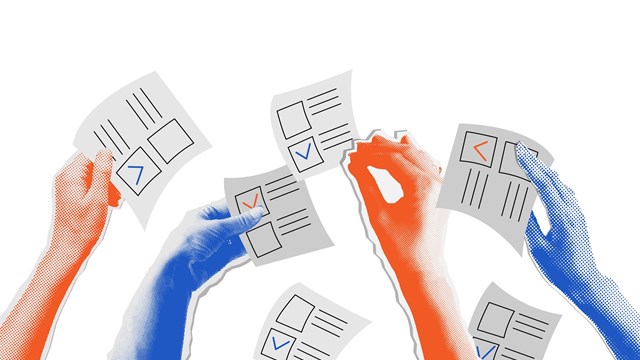
--Concerned Unit Owner
“Election issue are always more complicated than they might seem at first,” says Jennifer Loheac, an associate in the real estate department, at the Woodbridge-based law firm of Greenbaum Rowe Smith & Davis LLP. “The community association bylaws usually address elections only in broad strokes, specifying, generally, the qualifications of a trustee and that proxies must be “in a form approved by the board” and signed to be valid. Of course, this is not enough information for most communities to run a seamless, transparent election. Outstanding questions abound. What should be included on a proxy form? May the proxy ballot and form be combined one on page? When are the proxies due and by what method may they be delivered? What if co-owners, husband and wife, have different votes?
“As to the specific question here, if the community has professional management and counsel, my suggestion is that the board delegate the governance of the election procedure accordingly in order to keep the election procedure wholly independent from any one member running for the board. Even the appearance of a conflict of interest should be avoided. If there is no manager or counsel, then the board should very carefully craft an election packet with a cover letter to homeowners giving clear instructions with the time, date and place of the election meeting and with instructions on voting process. No one candidate should be highlighted over another. Everything should be mailed in a timely manner, prepared in strict accordance with the bylaws and signed by “the board” and not any one individual trustee. Under no circumstances should a trustee, whether the president or anyone else, attempt to unilaterally control or even editorialize the voting process.
“At law, ‘proxy’ means to “step into the shoes of another. This is very important because the proxy itself is not the vote; it’s the empowerment to vote on someone else’s behalf. An owner normally assigns a proxy when he or she will be unable to attend the meeting in person. It is not uncommon for individuals to assign a neighbor in the community as the proxy or altogether sign a proxy form and leave blank the proxy part. In this case, most times the proxy form will state that the secretary of the board shall serve as default proxy. This is understood as the “office of the secretary,” and we advise our clients that it is best that this default proxy cast any official votes in direct proportion to the breakdown of other votes cast so that there is no subjectivity by an individual. This is not required, but desirable.
“As to the proxy forms, there are two kinds: “directed proxy” and “open proxy.” The directed proxy is where an owner assigns another person to be his or her proxy for purposes of actually casting the vote, but the owner herself has checked the actual voting choices. An “open proxy” is the kind described above in this question to me. This is where an owner gives the proxy power to actually decide how to vote the ballot as well as deliver it in person. While it may seem odd for an owner to let a person serving as proxy also make the decision on how to vote, there are circumstances where open proxies have value to a community.
“Let me be very clear on a point that confuses many people. It is perfectly legal for homeowners or for members of the board to walk around the community collecting signed proxies from residents in hopes that the votes are favorable for the individual pounding the pavement. These facts are different. Here, you have a board president that is using his position to try to manipulate the voting process by creating an open proxy and giving instructions that direct for a signature, which in turn has the effect of appointing him proxy and also results in a vote in the president’s favor. It is fair to say that an unsuspecting homeowner may not have had the intention of voting for the president but simply trusted and followed instructions. And, at the very least, we can certainly say that owners did not cast a vote of their own will to vote for the president. Owners should not have to navigate trickery to understand the consequences of their voting. The president has abused his position to give himself an edge over other candidates. Even without a formal protest, on these facts, I would recommend to a client that the election be declared invalid. “Boards are entrusted with a very important fiduciary duty. As the governing entity over people’s lives and homes, the integrity of the election process must be upheld and respected. Where there is any kind of breakdown or compromise of that integrity, all the more credit to the board that has the character and humility to correct itself and conduct a fairer election. This is in the best long-term health of the community.”






3 Comments
Leave a Comment